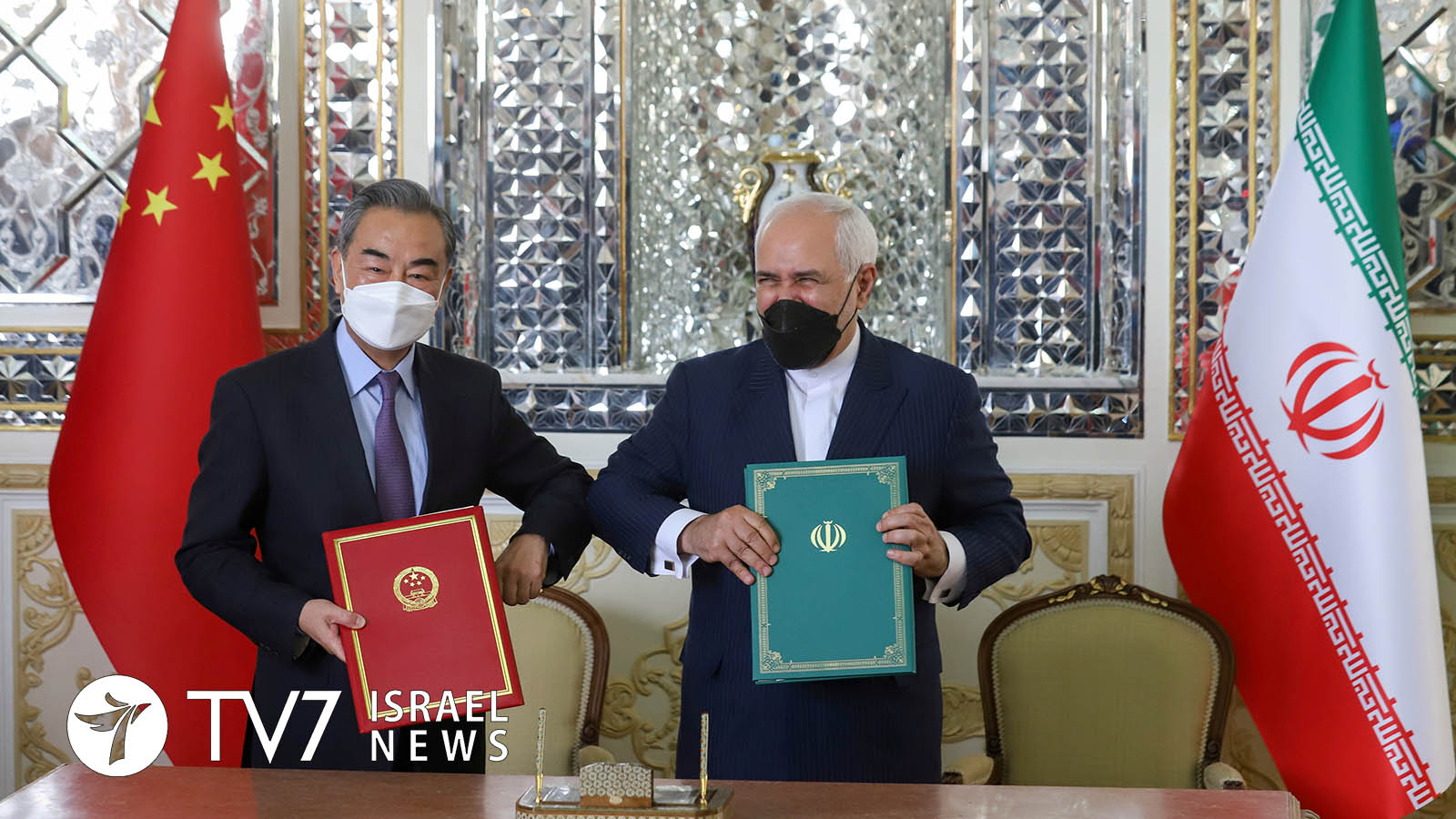The Islamic Republic of Iran and the People’s Republic of China (PRC) have signed a 25-year cooperation agreement to strengthen their long-standing economic and political alliance.
Iranian Foreign Ministry Spokesman Saeed Khatibzadeh described the accord as a “road map” for trade and economic and transportation cooperation, with a special focus on both countries’ private sectors,” which is expected to include Chinese investments in Iranian sectors such as energy and infrastructure.
Chinese Foreign Minister Wang Yi was cited by the Islamic state media as telling his Iranian counterpart Mohammad Javad Zarif that relations between their nations “have now reached the level of strategic partnership,” as part of Beijing’s bid to “comprehensively improve” bilateral ties.
One of the outgrowths of the new accord is Iranian involvement in China’s Belt and Road Initiative, which is a multi-trillion-dollar infrastructure scheme intended to stretch from East Asia to Europe.
The project, which aims to significantly expand China’s economic and political influence, has raised concerns in the United States.
China, which is also subject to US sanctions, has spoken out often against American punitive economic measures imposed on Iran. Iran’s Foreign Minister referred to the Asian nation as “a friend in hard times.”
At a meeting with Iranian President Hassan Rouhani ahead of the televised signing in Tehran, China’s top diplomat promised to provide more coronavirus vaccines to the Islamic Republic – which is the Middle Eastern country worst-hit by the pandemic.
Describing the Beijing-Tehran alliance as “permanent and strategic,” Wang made an apparent reference to the 2018 US withdrawal from the Joint Comprehensive Plan of Action (JCPOA), saying, “Iran decides independently on its relations with other countries and is not like some countries that change their position with one phone call.”
According to a post on his official website, Rouhani expressed appreciation of Chinese support for the Ayatollah Regime’s stance on its 2015 deal with world powers, in which it agreed to curb its nuclear program in return for the lifting of international sanctions.
“Cooperation between the two countries is very important for the implementation of the nuclear accord and the fulfilment of obligations by European countries,” said Rouhani.
Efforts by US President Joe Biden to renegotiate the JCPOA have been rebuffed by Tehran, which insists that sanctions re-imposed by the administration of former President Donald Trump must first be lifted prior to the holding of any talks. Iran retaliated by openly breaching the terms of the accord in a step-by-step response.
43 US bipartisan senators, many of whom opposed the JCPOA, appealed to President Biden to work toward an international agreement that addresses issues beyond Tehran’s nuclear program.
“Democrats and Republicans may have tactical differences, but we are united on preventing an Iranian nuclear weapon and addressing the wide range of Iranian behavior,” the senators wrote in a letter to Biden, dated last Thursday.
The initiative was led by Democratic Senator Bob Menendez and Republican Senator Lindsey Graham. Menendez, who currently serves as the Chairman of the Senate Foreign Relations Committee, was among Democrats who broke from then-President Barack Obama’s administration to join nearly every congressional Republican in opposing the nuclear agreement – which was also fiercely opposed by Israel.
The Senate document noted the “long-held view” from lawmakers and presidents from both parties that a nuclear-armed Iran would pose a grave threat to the natural security interests of the United States and its allies and partners. It also stressed the dangers posed by Tehran’s weapons shipment and support of proxy militias who target US forces with use of its ballistic and cruise missiles.
Meanwhile, Sino-US tensions are also on the rise. Over the weekend, US Secretary of State Antony Blinken condemned China’s decision to impose “baseless sanctions on two US Commission on International Religious Freedom (USCIRF) commissioners apparently in retaliation for US. sanctions on PRC officials connected with serious human rights abuse in Xinjiang.”
Xinjiang is an autonomous region of the PRC located in the northwest. Following terror attacks by separatists and radical Islamists on government forces dating back to the 1990s, the government unveiled what it called a “people’s war on terror” policy in 2014; in which internment camps for the indoctrination of the Muslim population including Uyghurs toward the adoption of atheism were opened in 2017. These measures have been largely by condemned by foreign observers, human rights groups and the international community as the attempted genocide of the Uyghur people.
In a press release TV7 obtained from the State Department, Blinken said the “Beijing’s attempts to intimidate and silence those speaking out for human rights and fundamental freedoms only contribute to the growing international scrutiny of the ongoing genocide and crimes against humanity in Xinjiang.”
He underscored that the United States stands “in solidarity” with Canada, the United Kingdom, the European Union and “other partners and allies around the world in calling on the PRC to end the human rights violations and abuses against predominantly Muslim Uyghurs and members of other ethnic and religious minority groups in Xinjiang,” and to immediately release those who have been “arbitrarily detained.”
